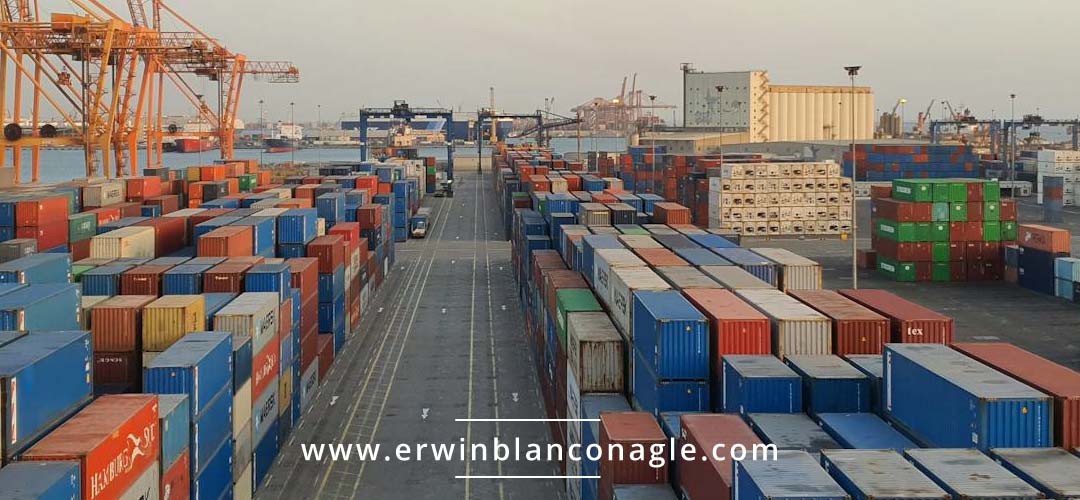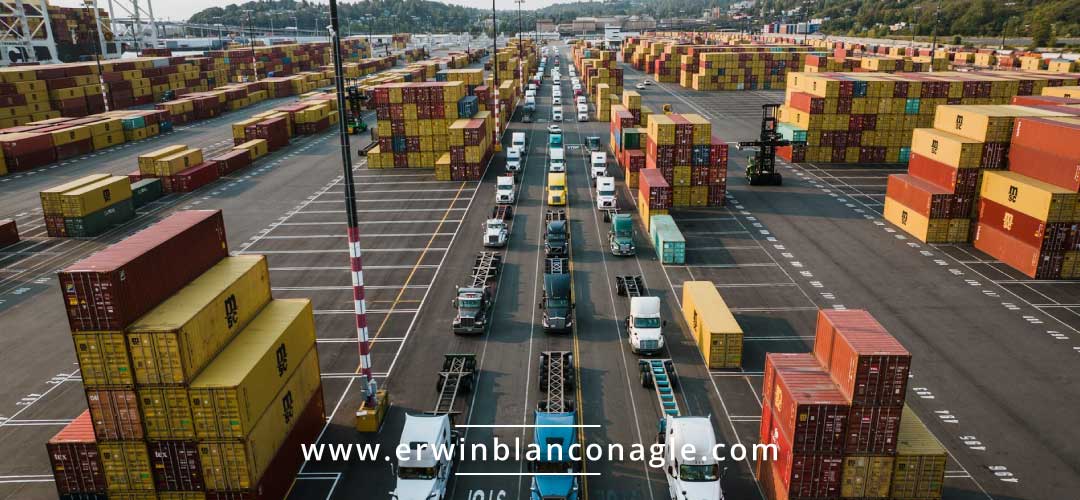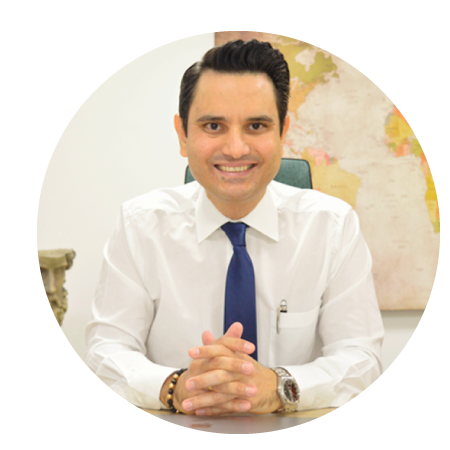This is the first in a series of publications in which I will analyze the “5 determining aspects for the optimal development of international operations in Colombia” ”, as referenced in the video you can view here.
The first analysis, which I will address this time, pertains to the corporate purpose of companies conducting international operations in Colombia, which, with certain nuances, could also apply to companies located in various territories worldwide.
From the multiple definitions that doctrinal experts have made of the corporate purpose, the one indicated by the treatise writer Jorge Gil in his work ‘Contemporary Corporate Law: Studies in Comparative Law’ stands out as follows:
“set of operations and activities by means of which the company develops its capacity and is allowed to enter into in any legal transaction aimed at achieving the operation of the business, industry, or activity it intends to undertake, as well as to exercise its rights and obligations.”
It should be noted that the corporate purpose falls within the attribute of legal capacity, as the company, in accordance with its stated corporate purpose, will engage in the various commercial transactions that motivated its incorporation.
Regarding the limits of a company's capacity, the Superintendence of Companies, through Legal Opinion No. 2763 dated May 1, 2011, stated:
“Article 99 of the Code of Commerce establishes the limits of the capacity of commercial companies by admitting three (3) types actions:
a) Those that are determined in the main activities outlined in the corporate purpose.
b) Those that are directly related to the main activities.
c) Those whose purpose is to exercise the rights and fulfill the obligations legally and conventionally derived from the existence and activities of the company.
The acts listed in a) and b) relate to the purpose pursued by the company and must, therefore, have a direct relationship with it.
The acts described in c) do not have a direct relationship with the activities outlined in the corporate purpose, as they arise from the existence and activities of the company.”
Thus, it is clear that the corporate purpose of the legal entity will determine the main and secondary acts that, by virtue of its legal capacity, it will be able to carry out.
However, it should be mentioned that, given the globalization of corporate law, there are currently two theories: the first related to a determined corporate purpose, and the second corresponding to an undetermined corporate purpose, which we will address next.
It is worth starting this point by mentioning that, under the French theory of a determined corporate purpose, companies must describe the activities they will carry out, whereas, under the theory of an undetermined corporate purpose, typical of the Anglo-Saxon system, companies are not required to specify them.
In Colombia, as a general rule, the theory of a determined corporate purpose applies; however, in the case of simplified stock companies, the indetermined theory has been adopted.
In this regard, the scholar Francisco Reyes Villamizar, in his work ‘Derecho Societario’ (Corporate Law), mentions:
“the theory of the specialty of the corporate requires as a method the impossibility of agreeing on an indetermined corporate purpose. This is prohibited under Colombian legislation, except for sole proprietorships with limited liability. (Law 222 of 1995, Article 72, number 5) and simplified joint stock companies (Law 1258 of 2008, Article 5, number 5). If the aforementioned prohibition is infringed, the clause will be deemed ineffective, that is to say, the clause will produce no legal effect without the need for judicial or administrative proceedings.”
The theory of a determined corporate purpose, present in Colombia, is also applied, with slight variations, in the case of joint stock companies of Roman-Germanic origin, but with an increasingly greater influence from the indetermined theory.
In the face of the theory of an indetermined corporate purpose, it is advisable to bring up the Model Business Corporation Act – MBCA (Type of Capital Companies Act), which sets aside the theory of a determined corporate purpose, eliminating the ultra vires doctrine from the legal system, and gives rise to the fact that it is not required, as a requirement for the constitution of a company, to describe the activities same will undertake.
In this regard, in his book Corporate Law in the United States and the European Union, Professor Reyes points out that:
The deregulation of the corporate purpose is a trend that is increasingly gaining strength globally, supported by Soft Law instruments which promote self-regulation aimed at the construction of global corporate law.
While it may seem that the indetermined theory has gained greater acceptance in the global environment, this does not mean that the determined theory lacks virtues, as a company with a determined corporate purpose allows for:
- For third parties, to know the activities carried out by the company, thereby generating identity.
- For investors, to establish the activities in which the company will invest, avoiding exposure to risks arising from activities not known in advance.
- For authorities, to validate that the activities other than the main and secondary ones do not constitute suspicious operations related to money laundering, financing of terrorism, among others.
- At the level of tax collection, the state will be able to classify the company within a sector of the economy, thereby allowing for projections of revenue collection by type of industry.
Certainly, one of the main drawbacks of the determined corporate purpose lies in the possibility that the company may develop acts that exceed its legal capacity, resulting in these acts being subject to absolute nullity.
On the other hand, companies with an indetermined corporate purpose have the following advantages:
- To develop all types of acts permitted by law.
- To allow its managers to venture into new lines of operation without being limited to specific activities.
- To align with the trend of global corporate law.
It has been considered by some doctrinal lines that one of the aspects that weakens the theory of an indetermined corporate purpose is precisely the limit on the powers of the company’s administrators. However, the emergence of corporate governance has allowed counteracting the potential concerns arising from the theory of a general corporate purpose.
(Regarding the responsibility of administrators, you can refer to the column titled "Joint and Several Liability in Customs and Exchange Matters".)
Thus, it can be observed that both theories contain substantive and formal arguments that have been used in different territories worldwide to adopt regulations at both extremes, and even a mix of them.
In Colombia, as mentioned earlier, the theory of a determined corporate purpose mainly applies, so that, except for simplified joint stock companies, the activities to be carried out by the company must be specified.
In the case of companies involved in international operations, special regulations establish requirements regarding their corporate purpose, as we will see below for some of them.
Decree 2147 of 2016 contemplates the following requirements:

Article 26. General requirements for the declaration of free trade zones. Article modified by Article 10 of Decree 278 of 2021. The new text is as follows:
Whoever intends to obtain the declaration of a free zone shall comply with following requirements:
- Constitution and identification of the new legal entity seeking the declaration of the free trade zone, which must be domiciled in the country and demonstrate its legal representation, or establish a branch of a foreign company legalized in accordance with the Commercial Code. Within the corporate purpose of the company, it must allow for the development of the functions inherent to the free trade zone.
Article 70. Requirements for the authorization of the user operator. To obtain authorization as a user operator of a free trade zone, the following requirements must be met:
- Be a legal entity duly established, domiciled in the country, and to demonstrate its legal representation or establish a branch of a foreign company legalized in accordance with the requirements of the Code of Commerce, the corporate purpose of which must be to develop the activities inherent to user operators as outlined in this decree, specifically those addressed in the paragraph of Article 21 and Article 73 of this decree. The corporate purpose must include the management, administration, supervision, and development of activities in free trade zones.
Article 80. Requirements and conditions for the qualification of industrial users of goods, industrial users of services, and commercial users. Article amended by Article 34 of Decree 278 of 2021. The new text is as follows:
Legal entities seeking to be qualified as industrial users of goods, industrial users of services, or commercial users of a free trade zone must meet the following requirements and submit the information to the user operator:
PARAGRAPH 7. Industrial users of goods and /or services in permanent free trade zones must maintain the corporate purpose and main economic activity for which they were qualified. In the event of a change in the corporate purpose and economic activity, the qualification must be adjusted by the user operator. In such cases, a new qualification must be obtained from the user operator, fulfilling all the requirements of this article, except for the requirement that it pertains to a new legal entity
Decree 1165 of 2019 contemplates the following requirements:

“Article 65. International marketing companies. These are those legal entities whose main corporate purpose is the marketing and sale of Colombian products abroad, acquired in the domestic market or manufactured by partner producers. In any case, all other activities carried out by the company must always be related to the execution of the main corporate purpose and the economic and financial sustainability of the company.
Decree 1165 of 2019 contemplates the following requirements:

“Article 36. General Requirements for Customs Agencies. To obtain the authorization as a Customs Agency, the following general requirements must be met:
- To have customs agency as its main purpose, except in the case of general bonded warehouses.”
When it comes to companies engaged in foreign trade in Colombia, it should be noted that a particular situation arises, as, regardless of the type of company they adopt upon incorporation, the special regulation establishes a series of requirements regarding their corporate purpose that must be observed in order for them to operate.
Under the above context, companies engaged in foreign trade must specifically outline certain legal requirements in their corporate purpose, thus presenting a hybrid scenario in which, on one hand, if the companies are incorporated as simplified joint stock companies, they will initially be covered by the theory of indeterminate corporate purpose. However, given that the special regulation establishes specific requirements, they will need to include these requirements in their corporate purpose for their operations to be viable.
Consequently, it will be necessary to evaluate the provisions outlined in the special customs regulations for each particular case in order to determine the specific requirements that must be met regarding their corporate purpose and related matters, so that the foreign trade user companies may operate in the Colombian environment.
- This first analysis of the “5 key aspects for the optimal development of international operations in Colombia”can be concluded by affirming that the corporate purpose is a highly relevant factor for the success of the company's activities.
- Colombia, like countries with Roman-Germanic systems, tends to adopt the theory of the determined corporate purpose, but with a strong influence of the indeterminate theory, typical of the Anglo-Saxon system.
- The general or indeterminate theory, particularly strong in the North American system, allows a company to engage in any act permitted by law, without the requirement to incorporate in its corporate purpose a list of activities the company will carry out
- The theory of the indeterminate corporate purpose does not exclude the possibility of incorporating the activities to be carried out by the company, so that the activities can be listed while also introducing the following mention: “all acts permitted by law”,a scenario in which the determined and indeterminate theories would converge.
- For certain companies, the legislator may establish specific requirements regarding their corporate purpose due to the activities they engage in, as occurs with companies involved in foreign trade operations.
Thank you for reading me.Don't miss the next publication where I will analyze the particularities of the legal capital of companies engaged in international trade.


